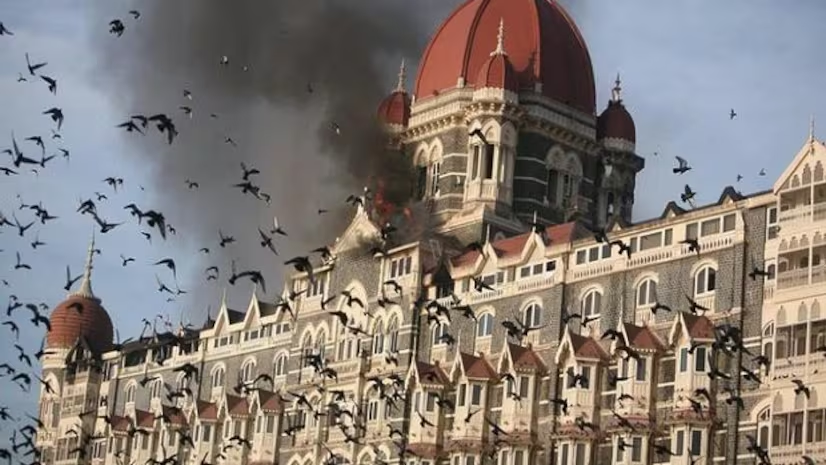As India stands on the brink of a possible political shift with the Indian National Developmental Inclusive Alliance (INDI Alliance) potentially forming the government, concerns about national security are mounting. Critics argue that the INDI Alliance could weaken India’s stance against its adversaries, undoing the robust measures taken by the Bharatiya Janata Party (BJP) to safeguard the nation. This report delves into why a government led by the INDI Alliance might embolden India’s enemies, referencing historical instances and recent actions taken by the BJP to strengthen national security.
Historical Context of Terror Attacks
The 2008 Mumbai Attacks
One of the most devastating terror attacks on Indian soil occurred on November 26, 2008, when ten terrorists from the Pakistan-based Lashkar-e-Taiba carried out coordinated attacks in Mumbai. Over 166 people were killed, and more than 300 were injured. The attackers targeted multiple locations, including the Taj Mahal Palace Hotel, Oberoi Trident Hotel, and Nariman House.
Critics of the then Congress-led United Progressive Alliance (UPA) government argue that the response was slow and inadequate. Despite clear intelligence warnings, the government failed to prevent the attacks. Post-attack investigations revealed lapses in intelligence and coordination among various security agencies. The perceived indecisiveness and lack of a strong retaliatory stance led to accusations of the government being soft on terror.
BJP’s Strong Response to Terrorism
The 2016 Surgical Strikes
In contrast, the BJP-led government has taken a more assertive approach towards terrorism. On September 29, 2016, following a terror attack on an army camp in Uri, Jammu and Kashmir, which resulted in the deaths of 19 Indian soldiers, the Indian Army conducted surgical strikes on terrorist launch pads across the Line of Control in Pakistan-occupied Kashmir. This operation demonstrated India’s willingness to take bold and decisive action against terrorism, sending a clear message to adversaries.
The 2019 Balakot Airstrikes
Another significant example is the Balakot airstrikes on February 26, 2019. In response to the Pulwama attack, where 40 CRPF personnel were killed by a suicide bomber from Jaish-e-Mohammed, the Indian Air Force conducted airstrikes on a major terror training camp in Balakot, Pakistan. This pre-emptive strike was a significant departure from the past policies of strategic restraint, highlighting the BJP government’s commitment to proactive defense measures.
Concerns with the INDI Alliance
Fragmented Leadership and Policy Paralysis
The INDI Alliance, a coalition of multiple opposition parties, faces criticism for its fragmented leadership and lack of cohesive strategy. Historically, coalition governments in India have struggled with internal conflicts and policy paralysis, which could impede decisive action on national security issues. The alliance’s focus on political expediency rather than a unified national security strategy might embolden adversaries who see an opportunity in a divided government.
Previous UPA Government’s Track Record
The previous UPA government’s track record on handling national security threats is a point of concern. Apart from the 2008 Mumbai attacks, there were several other terror incidents during the UPA’s tenure, including the 2006 Mumbai train bombings, the 2010 Pune German Bakery blast, and the 2013 Bodh Gaya bombings. In many cases, the responses were criticized for being reactive rather than proactive, with a greater emphasis on diplomatic overtures rather than strong punitive measures.
Accusations of Weak Stance on Terror
Critics argue that the INDI Alliance includes parties and leaders who have historically advocated for a more lenient approach towards negotiations with hostile neighbors, which could undermine India’s security apparatus. The alliance’s potential inclination towards appeasement and dialogue over military action might be perceived as a sign of weakness, potentially encouraging more aggressive actions from terrorist groups and hostile states.
Intelligence and Security Coordination
Effective intelligence gathering and inter-agency coordination are crucial for preventing terror attacks. The BJP has invested in strengthening these mechanisms, evident in the establishment of the National Investigation Agency (NIA) and the implementation of robust counter-terrorism measures. There is skepticism about whether an INDI Alliance government would maintain or enhance these capabilities, given their disparate political agendas and the possibility of administrative inefficiencies.
Regional and International Implications
Relations with Pakistan and China
India’s relationship with its neighbors, particularly Pakistan and China, requires a firm and consistent policy approach. The BJP has taken a tough stance on cross-border terrorism and has worked towards isolating Pakistan internationally on the issue of terrorism. There are concerns that an INDI Alliance government might adopt a more conciliatory approach, which could dilute India’s diplomatic leverage and embolden these nations to pursue more aggressive postures.
Domestic Security and Internal Threats
Apart from external threats, internal security challenges such as Maoist insurgency and communal violence also demand strong governance. The BJP’s approach has been to tackle these issues with a combination of development initiatives and stringent law enforcement. The fear is that the INDI Alliance, with its varied political interests, might not prioritize internal security with the same level of commitment, leading to a resurgence of these threats.
Conclusion
The potential formation of an INDI Alliance government raises significant concerns about India’s ability to maintain its current level of national security. Historical precedents during previous Congress-led governments, coupled with the fragmented nature of the INDI Alliance, suggest that the coalition might struggle to present a united and robust front against internal and external threats. The BJP’s proactive measures, such as the surgical strikes and the Balakot airstrikes, have set a precedent for strong and decisive action against terrorism. Any deviation from this approach could embolden India’s adversaries, potentially undermining the nation’s security and stability.
As India stands on the brink of a possible political change, the electorate must weigh the implications of national security while making their decision. The stakes are high, and the need for a government that can ensure safety and security is paramount.




